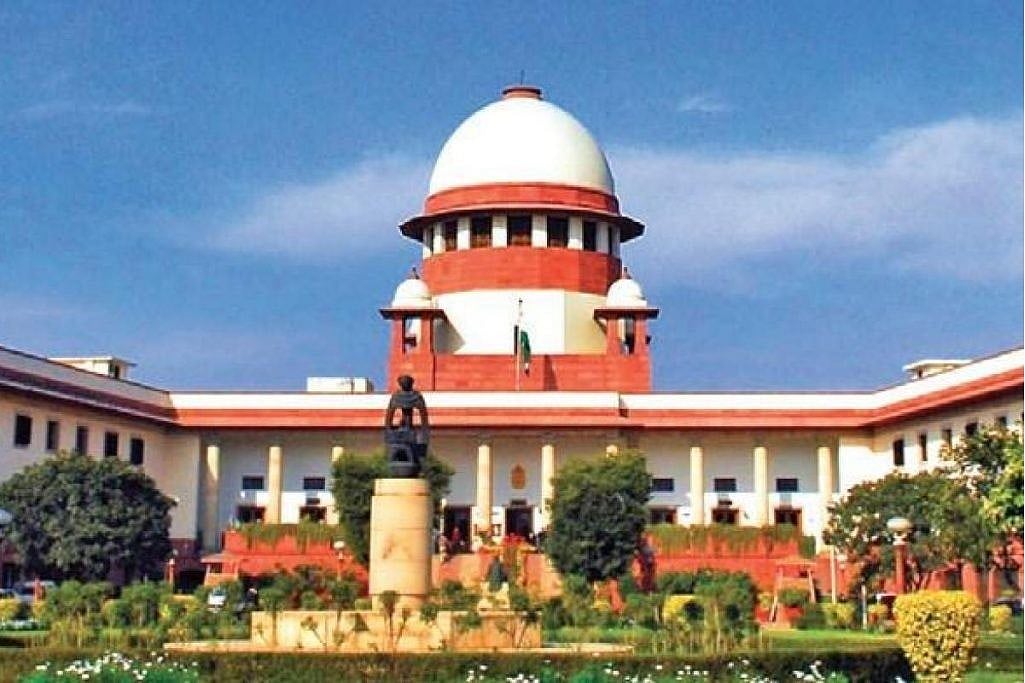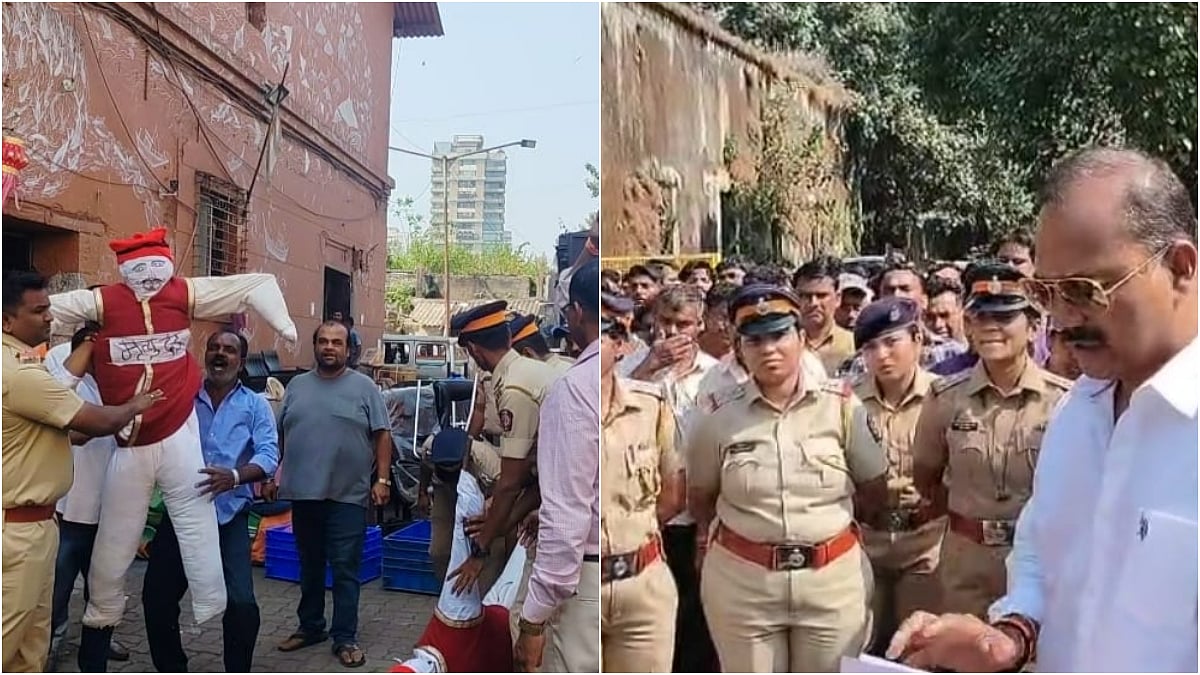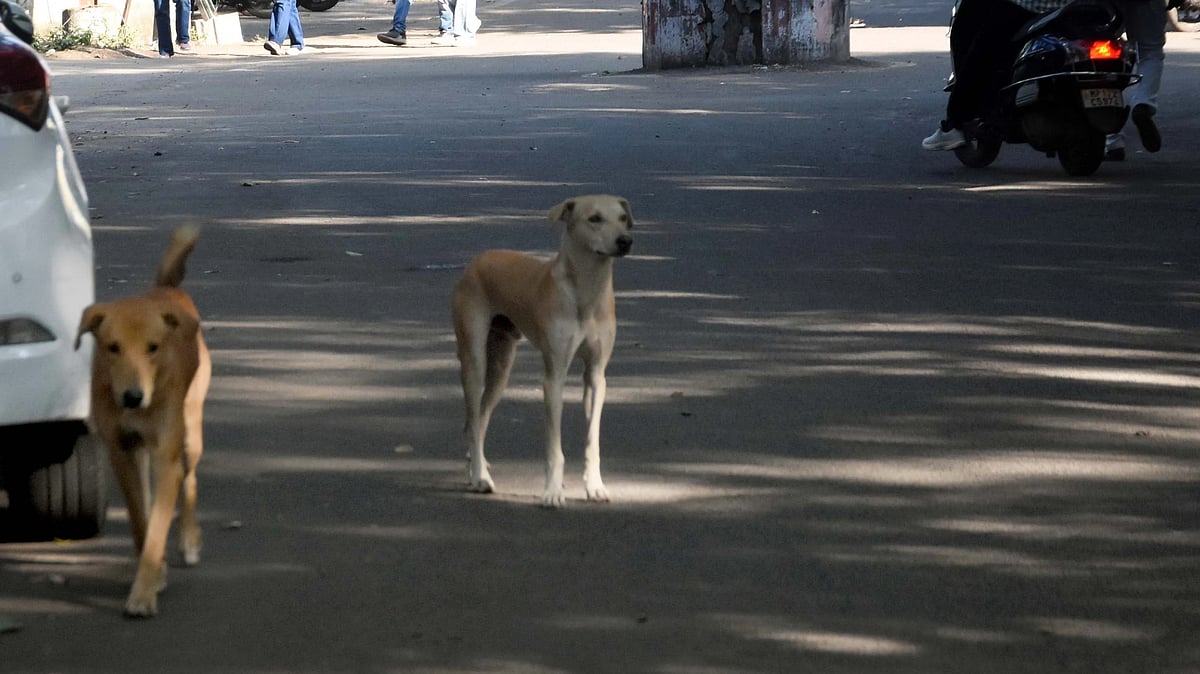The 48th CJI N V Ramana veered around to the view on Thursday that the offence of sedition should be scrapped from the statute books when he asked the Union government where was the need to retain this colonial law. “This archaic law is a serious threat to all democratic institutions and holds ‘enormous power’ for misuse with the executive not being responsible,” the three-judge bench led by CJI Ramana observed. He likened this obsolete law, which the founding fathers omitted from the Constitution, to “a saw” which a carpenter could use to cut down an entire forest instead of a tree.
Just as the police have arrested people under the extinct section 66-A of the Information Technology Act six years after the Supreme Court scrapped it in 2015, the British police jailed Lokmanya Tilak on July 27, 1897, for sedition. But the British police have now been supplanted by the Indian police, who jailed a Padma Shri awardee editor, Vinod Dua, and booked Congress MP Shashi Tharoor and six journalists including Rajdeep Sardesai under the same colonial law for tweeting about the death of a Delhi farmer during a tractor rally on Republic Day which ended in anarchy. Factual errors in reporting do not constitute sedition. The SC subsequently quashed the case against Dua.
Latest plea by retd Army officer
Shashi Tharoor, with his journalist friends, filed pleas in the apex court seeking to strike down this law, with the latest being a retired Army Major-General S G Vombatkere, who has sought the striking down of section 124A (sedition) from the Indian Penal Code, 1860, and the quashing of all sedition cases throughout India. But for this, CJI Ramana will have to set up a seven-judge bench to overrule the five-judge bench which upheld the law in Kedar Nath versus State of Bihar in 1962. CJI Ramana may not do this because the amicus curiae attorney-general K K Venugopal wants to retain the offence of sedition with specific guidelines.
Supreme Court Judge Dhananjaya Chandrachud had declared in a public speech on Tuesday that criminal laws should not be misused to hound citizens by stifling dissent. He explained how the Supreme Court is a ‘counter-majoritarian institution’, which is committed to protect the minorities because the judiciary is the first line of defence when citizens are jailed.
Despite such majestic words, citizens like the Jesuit priest Stan Swamy died in judicial custody after being charged under the Unlawful Activities Prevention Act. The Public Safety Act and the National Security Act are two other draconian laws which are misused to stifle dissent, rendering the sedition law an obsolete weapon to be used against dissenters. More so, when the United Kingdom, where this law was born, has scrapped this archaic law.
UAPA interpretation
The future CJI-in-waiting Justice Dhananjaya Chandrachud, will head the same Supreme Court next year which deprecated the Delhi high court judgment granting bail to three accused by pointing out, the Unlawful Activity under the Unlawful Activities Prevention Act (UAPA) did not define precisely what was an unlawful activity. This is the very same Supreme Court which declared the statements in the FIR made under the UAPA against suspects should be presumed to be true so they were not entitled to bail. How certain judges interpret these draconian laws within their courtrooms is the exact opposite of their grandiose speeches delivered in public, with the interpretation of laws like the UAPA coinciding with government ideology.
Be that as it may, the apex court has asked the Union government to declare its stand on the law of sedition. First introduced in 1870, the aim of the sedition law was to deal with ‘increasing Wahabi activities’ in India during the late 1800s, as they posed a challenge to the then British colonial government.
Laws to regulate media
The Supreme Court bench of Justices Uday Umesh Lalit and Ajay Rastogi issued notices to the Union government to enunciate their stand after two journalists challenged this law because they had been booked under it. What is strange is there are a plethora of laws to regulate the media, such as The Press Council Act, the Cable Television Networks (Regulation) Act and the National Broadcasting Standards Authority, so there is no need to book a journalist under the law of sedition for mistakes made in news reporting.
These laws exist apart from the new Information Technology rules, which apply indiscriminately to all digital content so even those who forward a WhatsApp message can be booked. These new I-T rules, which are subordinate legislation, are dangerous weapons used by the Union government to emasculate the media with vague words like ‘half-truths’ ‘good taste’ and ‘decency’, which can be twisted to suit the whims of those in power.
This is exactly why the Supreme Court needs to overrule the 1962 judgment of Kedar Nath Singh versus State of Bihar, where the judges clarified that disaffection or hatred for the government did not attract the sedition law encapsulated in Section 124-A. There had to be incitement to anarchy to overawe an elected government to constitute sedition.
Trepidation for those charged
As these endless debates go on back-and-forth in the Supreme Court, those who have been charged under the sedition law await their fate with trepidation. Police in Chhattisgarh have filed a sedition case against an Indian Police Service officer who was suspended for having disproportionate assets. Although he never incited any violence against the Chhattisgarh government, G P Singh was accused of conspiring against the government. Without incitement to violence, this does not constitute sedition.
Ironically, Singh had previously headed the state ACB and its Economic Offences Wing, which arouses suspicion that he may have refused to close cases against vindictive politicians. In Maharashtra, the ACB dropped nine cases against their top boss, Deputy Chief Minister Ajit Pawar, who was accused in the Rs70,000 crore irrigation scam.
As expected, the ACB claimed there was no link with Ajit Pawar becoming the Maharashtra deputy chief minister and the dropping of these corruption cases against him. Unlike G P Singh in Chhattisgarh, ACB chief Rajnish Seth will not be booked for sedition by the NCP led by Sharad Pawar. As former Mumbai Police chief Param Bir Singh knows, exposing the home minister may land you in jail.
Antithesis of free speech
So, sedition is the antithesis of free speech, just as corruption is a synonym for power. News anchors like Arnab Goswami may get away by accusing the opposition of being anti-national but Congress MP Shashi Tharoor and journalists like Rajdeep Sardesai, Mrinal Pande, Zafar Agha, Paresh Nath, Vinod K Jose and Anant Nath have a different tale to relate. They were booked under sedition, among other offences, for their alleged tweets over the death of a farmer during the tractor rally in Delhi on the last Republic Day.
The Madhya Pradesh police had also filed a case against Shashi Tharoor for his alleged ‘misleading’ tweets on the violence during the farmers’ tractor rally in New Delhi when thousands of protesting farmers clashed with the police. The farmers’ unions had called for the tractor rally in support of their demand to repeal what they called anti-farmer laws.
Those who rule may enact communal laws to make us fools. The demolition of a Syro-Malabar church in south Delhi which was allegedly built on encroached land aroused the ire of Kerala Chief Minister Pinarayi Vijayan, who said he would speak to his Delhi counterpart Arvind Kejriwal. Kejriwal passed the buck by saying the Delhi Development Authority was autonomous.
Sedition is used by lawbreakers-turned-lawmakers to demonise their opponents.
Similarly, Editor Dhanya Rajendran spoke to the 16 Muslims who were allegedly fired from their low-paying contract jobs at the Bengaluru city corporation’s Covid war room, after their names were read out by MP Tejasvi Surya, flanked by three MLAs from the same party. These 16 Muslims had nothing to do with a bed-blocking scam in the hospital for Covid-affected patients. The civic body said they would be reinstated.
But lawmakers like Tejasvi Surya incite others to break the law. These lawmakers will be called patriots while those whom they destroy will be called traitors.
The writer holds a PhD in law and is a senior journalist-cum-advocate of the Bombay high court









